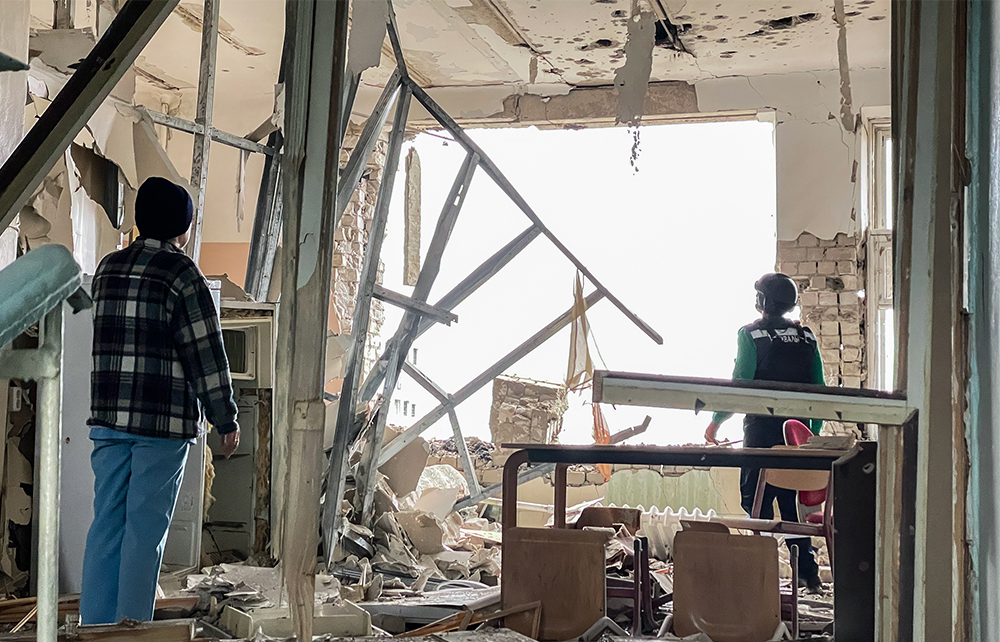Christopher Perryman, a former British soldier, did not enjoy life as a security guard protecting the HS2 line from eco-protestors. They called him a child molester and a bigot. So when Vladimir Putin invaded Ukraine last year, he decided to go there instead.
‘I hated HS2 – we were getting things thrown at us, and getting called every name you can think of. They called us the foot soldiers of fascism,’ says Perryman, who served in Iraq with the Royal Regiment of Fusiliers. ‘Then a mate told me that Ukraine’s President was asking for foreign military veterans to help. I’ve never liked bullies and Putin is a bully, so off I went.’ Perryman is now with a unit of western volunteers helping Ukrainian forces battle for the islands along the Dnipro river near Kherson, which is where I met him last month.
When temperatures drop to -10°C, soldiers can’t even make tea for fear the drones may detect a stove light
Like the HS2 eco-protestors, Perryman has yet to come face to face with a real fascist foot soldier. The Russians keep their distance, and so far, the closest he’s got to seeing one was a brief, rustling presence in some bushes a few hundred metres away, gone before he could train his rifle on it.
The turf that he is fighting for doesn’t even resemble a battlefield. The Dnipro’s islands are full of retirement homes, a sprawl of jerry-built holiday chalets like a Black Sea Isle of Sheppey. In normal times, pensioners would be pottering on their vegetable patches and making homebrew vodka. Compared with the grimy Donbas, with its slag heaps, trenches and tank battles, it looks quite literally like a backwater.
But the scrap for these marshy outposts is a fierce one. Whoever controls them can control traffic along the Dnipro, the waterway that leads north to Kyiv and splits Ukraine into east and west.







Comments
Join the debate for just £1 a month
Be part of the conversation with other Spectator readers by getting your first three months for £3.
UNLOCK ACCESS Just £1 a monthAlready a subscriber? Log in